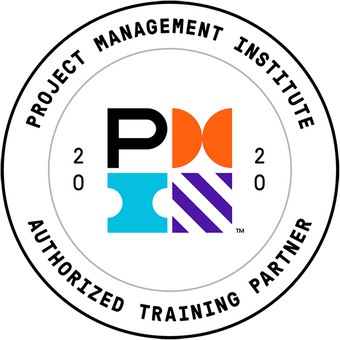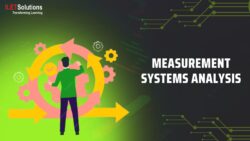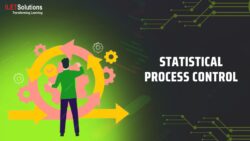The training features plenty of opportunities to practice with examples, exercises and quizzes to test your knowledge. By the end of the course, you will have the skills to conduct simple, straightforward analysis to understand uncertainty in measurement systems and improve processes at your company. You won’t need to do any advanced math or derive proofs behind the formulas or statistics. You will learn how to use popular programs like Excel and Minitab to do the calculations, and how to read the data and analyze the results of the study.
Highlights:
- 12 practical tutorials with videos, reference guides, exercises and quizzes.
- Designed to prepare you in part for the IASSC Green Belt exam. To prepare in full, you should also take the Lean Six Sigma Principles, Statical Process Control, and Hypothesis Testing courses part of our four course lean Six Sigma Green Belt program.
- Understand the concept of a data measurement system and data measurement error.
- Learn the key attributes of an effective data measurement system.
- Master the Gage Repeatability and Reproducibility (Gage R&R) technique to understand the typical variation that exists in your measurement system.
- Perform Variable Data and Attribute Data Gage R&R calculations using Excel and Minitab.
- Aligned to the IASSC Lean Six Sigma Green Belt Body of Knowledge.
- The only method to earn an IASSC certification is to successfully sit for and pass an official IASSC certification™ exam, which can be taken through IASSC. We do not provide access to IASSC Certification exams.
- Earn 2 PDUs or contact hours toward your Project Management education for certification with PMI.
Once enrolled, our friendly support team is here to help with any course-related inquiries.
Summary
- Skill level: Intermediate
- Lessons: 14
- Pre-requisites: None
- Estimated study time: 7h 30m for all materials
- Certificate: Yes
- Accredited by: CPD
- Video duration: 1h 16m
Features
Premium video tutorials
Personalized Learning
Learn at your own pace
Tests and Quizzes
Award winning instructors
Get Certified
Mobile - Learn on the go
Regularly updated content
Accreditations & Approvals
All courses under each learning path are accredited and approved by one or more of the following bodies as is applicable.



Instructors
All courses are taught by reputed trainers with relevant accreditations and industry experience.
Modules
Data Measurement
Measurement Systems
Precision and Accuracy
Stability, Linearity, Discrimination
These three attributes of a measurement system are inherent in the design and management of the system. When not managed well they will prevent effective measurements. Each of these is discussed and principles for managing them are introduced.
Standards and Calibration
Gage R&R Principles
Gage R&R Methodology
Gage R&R Study Design Considerations
When designing the study, there are several critical considerations based upon the type of test (destructive or non-destructive), the discrimination of the test system, and whether attribute tests can designate an item into multiple categories beyond Pass/Fail. These considerations impact the accuracy and performance of the analysis.
Gage R&R Execution and Analysis
Variable Data Gage R&R Calculations
Variable data Gage R&R Studies calculate a comprehensive measurement that can be used to determine the efficacy of the measurement system that is creating variable measurements of product or process characteristics. This lesson describes those calculations and highlights where weaknesses in the system will be exposed.
Variable Data Gage R&R Examples
This lesson walks through an example of a variable data Gage R&R analysis. The example is demonstrated using manual data collection and equations with a spreadsheet in Microsoft Excel. The same example is then demonstrated using the statistical software program Minitab, which is often used to conduct analyses for Lean Six Sigma projects.
Attribute Data Gage R&R Calculations
Attribute data Gage R&R Studies generate a number of metrics that are used for judging the performance of the measurement system used to evaluate pass/fail attribute data. In this lesson, each of these metrics is described and the method of calculation is explained.
Attribute Data Gage R&R Examples
This lesson walks through an example of an attribute data Gage R&R analysis. The example is demonstrated using manual data collection and equations with the Microsoft Excel spreadsheet application. The same example is then demonstrated using the statistical software program Minitab, which is often used for analyses with Lean Six Sigma projects.
Type 1 Gage Studies
Gage R&R studies can be done with automated test equipment to be certain that they are providing accurate and precise results. These are known as Type 1 Gage studies. These studies can be used with any type of automated checking or testing system, not just manufacturing systems. A satisfactory Type 1 Study is often needed to convince stakeholders to have confidence in automation.
Target Audience
- Graduates exploring placement in the entry-level Lean Six Sigma positions across industries
- Professionals needing upskilling to be future-ready or become more productive in their current roles
- Experienced individuals exploring Measurement Systems Analysis.
How do I Access The Program
- Buy the course online
- Save your payment transaction receipt for any future reference
- Our team will share the credentials to enable you access your course online within 2 business days of payment transfer
Bulk Orders
Incase you are looking for bulk user licenses, or customized Learning Paths for various Job Roles, reach out to us with your detailed requirements.






Reviews
There are no reviews yet.